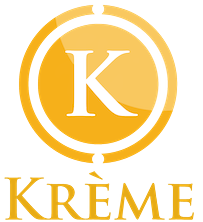The proverb “you are what you eat “ still holds true; Healthy skin is the product of balanced diet and water intake. Proper dietary choices help regulate hydration, oil production and overall cell function. On a daily basis, our goal should be consuming the right amount of macronutrients and micronutrients for our individual needs.
MACRONUTRIENTS: Macronutrients are the basic building blocks necessary for bodily functions, including the functioning of the skin. The macronutrients are the three basic food groups, proteins, carbohydrates, and fats. They make up the largest part of nutrition we eat Eating foods found in all three of these basic food groups is necessary to support health of the body. According to USDA's DASH Eating plan , the following are the daily recommendations: protein 20% , carbohydrates 54%, fat 26%, based on an intake of 2000 calories .
MICRONUTRIENTS: Micronutrients are vitamins and minerals that we need for proper body functions including copper, iodine, zinc and selenium. They are used in processes carried out by the cells for production of many biochemical necessary for life. Vitamins play an important role in skin's health by aiding in healing, softening and fighting skin disease. Experts agree that eating foods rich in nutrients and loaded with vitamins and minerals is the most important way to achieve health in general; however taking vitamin and mineral supplements may provide additional skin support. Vitamins fall into two categories: fat soluble (A,D,E and K) and water soluble (vitamin B and C). Generally, fat soluble vitamins are stored in the body while the water soluble vitamins are generally not stored in the body and replenished .
Most of these can be obtained through many foods. The following are a few examples of nutrients and their sources.
Vitamin A: Yellow / green fruits and vegetables, carrots, fish liver oil.
Function: growth and repair of the body tissue and bone
formation
Deficiency: night blindness, fatigue, dry skin, bone
deterioration
Vitamin D: Egg yolk, meats, fish , fortified milk
Function: healthy bone healthy circulatory functions, nervous
Systems.
Deficiency : rickets , osteoporosis, poor bone growth, nervous
systems irritability
Vitamin E: Green vegetables, meats, eggs, vegetable oils
Function: cellular respiration, red blood cells, inhibits coagulation
of blood.
Deficiency : gastrointestinal conditions, heart disease, abnormal
fat deposits in muscles, muscular atrophy.
Vitamin C: citrus fruits ,vegetables, tomatoes and potatoes
Function: collagen maintenance, aids in healing and resistance to
disease
Deficiency: slow healing wound, nosebleeds, poor digestion,
Gum bleeding.
B complex (Niacin) : poultry, fish, milk products
Functions: metabolism, healthy skin, blood circulation, essential for synthesis of sex hormones.
Deficiency: fatigue, indigestion, skin conditions, loss of appetite
This is by no means an exhaustive list of nutrients and their functions but I wanted to mention a few common vitamins to give you an idea and hopefully answer some of your questions. However before starting any diet or switching your diet I would urge you to visit a professional(trained and qualified) in order to tailor a healthy routine for your own needs/lifestyle.
In part two, I will share a few lifestyle tips help in your journey to healthy skin .
If you have questions please contact us or leave in comment section below

